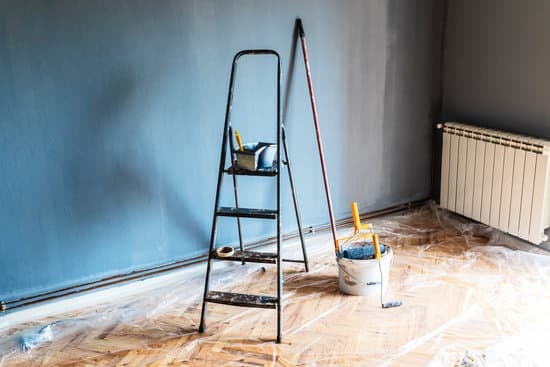When it comes to making improvements to your home, hiring a professional contractor can make all the difference in the success of your project. Whether you’re considering a small renovation or a major overhaul, understanding the role of home improvement contractors is crucial in ensuring that your project is completed safely and effectively.
Homeowners may wonder whether these contractors are required to meet certain standards and qualifications. In this article, we will delve into the legal and practical obligations that home improvement contractors have to fulfill in order to operate within the industry. From licensing and insurance requirements to compliance with building codes and regulations, it’s important for both homeowners and contractors to understand the responsibilities involved.
In addition to discussing the various legal requirements, we will also explore the training and certification necessary for home improvement contractors. By examining these factors, homeowners can gain a better understanding of why it is essential to hire licensed and insured professionals for their home improvement projects. So, do home improvement contractors have to meet specific criteria? Let’s find out.
Licensing and Permit Requirements for Home Improvement Contractors
Licensing
In many states and municipalities, home improvement contractors are required to obtain a license in order to legally operate their business. This process typically involves meeting certain education and experience requirements, as well as passing an examination to demonstrate competency in the field. Additionally, some jurisdictions may also require contractors to provide proof of liability insurance and/or bonding before being issued a license.
Permit Requirements
When undertaking home improvement projects, contractors often need to obtain permits from the local government or building authority. These permits serve as a way for the city or county to ensure that the work being done complies with building codes and regulations, and that it is being performed by qualified individuals. Failure to obtain the necessary permits can result in fines, project delays, or even legal repercussions for both the contractor and homeowner.
Compliance With Regulations
Home improvement contractors must adhere to all relevant regulations regarding licensing and permitting in order to operate legally. This includes staying up-to-date on changes to licensing requirements, ensuring that all necessary permits are obtained before starting work on a project, and maintaining compliance with any ongoing obligations related to their licensure. By doing so, contractors can avoid potential legal issues while also providing peace of mind for their clients.
Overall, it is critical for home improvement contractors to understand and comply with licensing and permit requirements in their area in order to protect both themselves and their customers. By obtaining the proper credentials and following all necessary procedures, contractors can demonstrate their professionalism and commitment to delivering high-quality work while also minimizing the risk of costly mistakes or legal disputes.
Insurance and Bonding for Home Improvement Contractors
When hiring a home improvement contractor, it is important to understand the insurance and bonding requirements that contractors must adhere to. Both insurance and bonding serve as a form of protection for both the homeowner and the contractor in the event of unforeseen circumstances or issues that may arise during the course of a project.
- Insurance: Home improvement contractors are typically required to carry liability insurance and workers’ compensation insurance. Liability insurance protects the homeowner in case any damage occurs to their property as a result of the contractor‘s work.
Workers’ compensation insurance, on the other hand, provides coverage for any workers who may be injured while working on the project. It is crucial for homeowners to verify that their chosen contractor has valid and up-to-date insurance coverage before starting any project. - Bonding: In addition to insurance, some states require home improvement contractors to be bonded. A contractor bond acts as a form of financial security for the homeowner, ensuring that they are protected in case the contractor fails to fulfill their obligations or meet contractual requirements. Bonding also provides recourse for homeowners if they need to file a claim against the contractor for subpar work or non-compliance with contractual agreements.
It is essential for homeowners to inquire about a contractor’s insurance coverage and bonding status before hiring them for any home improvement project. By doing so, homeowners can protect themselves from potential liabilities and ensure that they are working with a reputable and reliable contractor who complies with all legal requirements.
Compliance With Building Codes and Regulations
The Importance of Compliance
When it comes to home improvement projects, ensuring compliance with building codes and regulations is of utmost importance. These codes and regulations are in place to ensure the safety, structural integrity, and overall quality of the work being done. Failure to comply with these requirements can result in costly fines, project delays, and even legal issues.
Understanding Building Codes and Regulations
Building codes and regulations vary by location, and it is the responsibility of home improvement contractors to be familiar with the specific requirements in their area. This includes understanding zoning laws, fire safety codes, electrical codes, plumbing codes, and more. These regulations dictate everything from the materials that can be used to the methods of installation that must be followed.
Ensuring Compliance
Home improvement contractors have to ensure that all work being done meets the necessary building codes and regulations. This may involve obtaining permits for certain types of work, ensuring proper structural elements are in place, and obtaining inspections at various stages of the project. It is crucial for contractors to stay up-to-date on any changes or updates to building codes in order to avoid any potential issues.
Overall, compliance with building codes and regulations is non-negotiable for home improvement contractors. By adhering to these standards, contractors can ensure the safety and satisfaction of their clients while also protecting themselves from potential legal repercussions.
Responsibilities and Liabilities of Home Improvement Contractors
Home improvement contractors have both responsibilities and liabilities when working on a project. Understanding these is crucial for both the contractor and the homeowner. Here are some key points to consider:
1. Fulfillment of Contractual Obligations: Home improvement contractors have the responsibility to fulfill all the terms and conditions outlined in the contract with the homeowner. This includes completing the work within the agreed-upon timeframe, using quality materials, and adhering to the agreed-upon budget.
2. Ensuring Safety and Compliance: Contractors are responsible for maintaining a safe working environment for their crew and ensuring that all work is performed in compliance with building codes and regulations. This includes obtaining any necessary permits before starting work on a project.
3. Liability for Workmanship: Home improvement contractors can be held liable for any defects or issues with their workmanship. This means they may be obligated to come back and fix any problems that arise from their work, especially within a certain warranty period.
Furthermore, home improvement contractors also have liabilities towards their clients. They must ensure that they do not cause harm or damage to the property while performing their work, and should also carry insurance to protect both themselves and the homeowners in case of accidents or damages during the course of the project.
Contractual Obligations and Legal Requirements
As a homeowner looking to hire a home improvement contractor, it is important to understand the contractual obligations and legal requirements that both you and the contractor must adhere to. Home improvement contractors play a crucial role in ensuring that your renovation or remodeling project is completed according to your specifications and in compliance with all relevant laws and regulations.
One of the most common questions homeowners have is: do home improvement contractors have to be licensed? The answer is yes, in most states, home improvement contractors are required to be licensed in order to legally perform construction work on residential properties. Licensing requirements vary by state, but typically involve completing a certain amount of education or training, passing an exam, and obtaining liability insurance.
In addition to licensing, there are also legal requirements that govern the relationship between homeowners and contractors. This includes complying with consumer protection laws, adhering to contract terms and conditions, obtaining necessary permits for the work being done, and following safety regulations on the job site. It is essential for both parties to fully understand their rights and responsibilities under the law in order to avoid any potential disputes or legal issues during the course of the project.
Overall, ensuring that your home improvement contractor is aware of and compliant with all contractual obligations and legal requirements will give you peace of mind throughout the renovation process. By hiring a licensed and insured contractor who understands and follows industry regulations, you can minimize risks and ensure that your project is completed professionally and according to standard practices.
| Legal Requirements for Home Improvement Contractors | Importance |
|---|---|
| Licensing | Ensures professionalism and quality work |
| Consumer Protection Laws | Protects homeowners from fraudulent practices |
| Permit Compliance | Ensures work meets safety standards |
Training and Certification for Home Improvement Contractors
Home improvement contractors play an essential role in renovating and improving residential properties. As such, it is crucial for these professionals to have the necessary training and certification to ensure that they have the skills and knowledge required to perform their work effectively and safely.
In many states and municipalities, home improvement contractors are required to obtain specific training and certification before they can legally operate their businesses. This often includes completing courses or apprenticeships in relevant fields such as construction, carpentry, plumbing, electrical work, or HVAC systems. Additionally, some jurisdictions may require contractors to pass a licensing examination to demonstrate their competence in their chosen trade.
Furthermore, certification from reputable industry organizations can also enhance a contractor’s credibility and demonstrate their commitment to maintaining high standards of professionalism and quality. For example, the National Association of Home Builders (NAHB) offers various certifications for different areas of home improvement, including Certified Graduate Remodeler (CGR) and Certified Aging-in-Place Specialist (CAPS) designations.
Overall, the training and certification requirements for home improvement contractors vary by location, but obtaining the necessary qualifications not only ensures compliance with legal regulations but also reflects a contractor’s dedication to honing their skills and providing excellent service to their clients.
| State | Training/Certification Requirements |
|---|---|
| California | All home improvement contractors must be licensed by the Contractors State License Board (CSLB) after completing a qualifying examination. |
| Texas | Contractors are required to complete at least four hours of continuing education every year as part of their license renewal process. |
| New York | Contractors must complete a minimum of 22.5 hours of approved continuing education within the two years prior to renewing their license. |
Importance of Hiring a Licensed and Insured Home Improvement Contractor
Home improvement contractors play a crucial role in ensuring that home renovation and construction projects are completed safely, efficiently, and up to code. They are responsible for overseeing all aspects of the project, from obtaining necessary permits to adhering to building codes and regulations. But with this important role comes certain obligations and requirements that must be met. So, do home improvement contractors have to meet specific criteria to be able to practice their trade?
Licensing and permit requirements are essential for home improvement contractors, as they demonstrate the contractor’s qualifications and knowledge in their field. By being licensed, contractors show that they have met certain standards set by their state or local government, ensuring that they are equipped to handle the complexities of home improvement projects. Additionally, obtaining permits is necessary to ensure that all work is completed in compliance with local regulations and building codes.
Insurance and bonding are also crucial for home improvement contractors as they provide protection for both the contractor and the homeowner. Liability insurance safeguards homeowners from financial responsibility in case of accidents or damages during the project, while bonding provides assurance that the contractor will complete the project as agreed upon in the contract. These requirements not only protect both parties but also contribute to the overall professionalism and reliability of a contractor.
In conclusion, hiring a licensed and insured home improvement contractor is not just a recommendation – it is a necessity. The stringent requirements for licensing, permits, insurance, bonding, training, certification, and compliance with building codes all serve to ensure that homeowners can trust contractors to complete their projects safely and proficiently. With these measures in place, homeowners can have peace of mind knowing that their investment in home improvements is in good hands.
Frequently Asked Questions
What Is the Law for Home Improvement in NY?
The law for home improvement in NY requires contractors to provide a written contract for projects over $200. This contract must include specific details about the work to be done, cost, and timeline.
What Not to Tell Your Contractor?
When working with a contractor, it’s important not to divulge personal financial information or other confidential details that are not directly related to the project. Keeping conversations focused on the task at hand is key.
Do Contractors Need to Be Licensed in Pennsylvania?
In Pennsylvania, contractors are required to be licensed if they perform at least $5,000 worth of home improvements annually. This licensing helps ensure that contractors have met certain requirements and can be held accountable for their work.

I’m thrilled to have you here as a part of the Remodeling Top community. This is where my journey as an architect and remodeling enthusiast intersects with your passion for transforming houses into dream homes.





